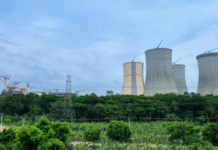
According to official sources, Dhaka and Doha signed a Memorandum of Understanding (MoU) in January 16, 2011 to import 500 million cubic feet per day (MMCFD) equivalent gas to meet the growing demand of gas in the country.
They said the deal’s effectiveness was set until March 2013 as the government had a plan to start the import of the liquefied gas from first half of that year after developing necessary infrastructures.
Official sources said under the framework of the MoU, a lot of follow-up actions were supposed to be taken by Bangladesh. “But Bangladesh could not be able to do so,” said a top official at the Energy Ministry preferring anonymity.
The actions include creating LNG import facilities, technical discussion, fixing prices and signing of final contract for the import of the liquefied gas.
“As the effectiveness of the MoU expired in March, so Energy Ministry has requested Bangladesh Embassy in Doha to pursue the Qatar government to get its extension,” said the official. He, however, did not elaborate as for how long Dhaka would seek the extension of the deal.
Sources said the creation of facilities for LNG import was the most important post-MoU measure. Under this obligation, the Energy Ministry moved to set up an LNG terminal at Maheshkhali Island in Cox’s Bazar district.
An international tender was invited by Petrobangla, the main energy entity under the Energy Ministry, to set up the LGN terminal in private sector. But in the last two years, the Petrobangla could not make any headway towards selecting a private company to award the job.
Finally, it rejected the US-based Astra Oil and Excelerate Energy’s offer finding unsuitable for the country. But later no fresh tender was invited by the organisation to award the job.
“As a result, the other issues like technical discussion with Qatar, fixing LNG prices and signing final contract, all of which depend on the development of LNG terminal, could not proceed much,” the energy Ministry official said.
However, Petrobangla took up a project to build a 90-km pipeline from proposed site of the LNG terminal to the port city of Chittagong to connect the gas to be imported with national gas transmission pipelines.
Meanwhile, the country’s energy experts have termed the LNG import initiative a non-viable project for Bangladesh.
Dr M Tamim, former Special Assistant to a caretaker government Chief Advisor, recently said the LNG import plan has never been a financially viable project as the import price of gas will be more than US$ 15 per 1,000 cubic feet (MCF) gas, which is not affordable for Bangladesh.
Dr Tamim, a Professor of Petroleum and Mineral Resources Engineering at the Bangladesh University of Engineering and Technology (Buet), described the move as a highly ambitious and unrealistic one.
He suggested that the government concentrate more on offshore and onshore exploration and drilling by both local and foreign companies to find a quick solution as this is the only available option.









